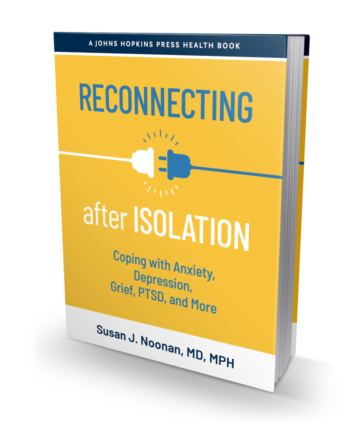 Ugh you say, as you roll your eyes. Don’t lecture me on what I should do! But this isn’t a cliché or a holier-than-thou lecture on the benefits of volunteering your time. It is my own personal experience of how volunteering helped get me, and now maybe you, through depression.
Ugh you say, as you roll your eyes. Don’t lecture me on what I should do! But this isn’t a cliché or a holier-than-thou lecture on the benefits of volunteering your time. It is my own personal experience of how volunteering helped get me, and now maybe you, through depression.
How is this possible, you might wonder. I can barely take care of myself, get off the couch, or think straight. I couldn’t do something like that – I would fail miserably and embarrass myself. It’s contrary to what you might naturally think to do when depressed. Well, think about the following and see if it makes sense to you.
The first thing to know is that when you volunteer you commit to make yourself available to a person or an organization for a period of time, say 2 or 4 hours per week, on a regular, ongoing basis. You do it in small steps, not all at once. You become accountable to others for showing up, on time and ready to function at some moderate level. They will depend on you for that. It’s a big step. This was good for my depression, and I’ll bet yours as well. The person or organization does not know you, doesn’t know that you don’t feel well and are feeling depressed. It’s actually possible to fake it, to “act as if” you’re feeling well for short periods of time, and establish new relationships with new people.
Second is that when you volunteer your time on a regular basis it gives you a sense of purpose and accomplishment that perhaps you may have forgotten. You feel better about yourself and your self-confidence improves. You come to feel needed and appreciated for what you do for others. That is important to have, and I found that it’s a different feeling from when you have a paid job. You can also learn new skills that you can use in other areas of your life. Volunteering gives you the opportunity to think of something and someone else other than being swallowed up by your own overwhelmingly depressed, negative thoughts. Seeing the problems that other people have made my own problems seem less intense in comparison, at least for a short while. Having lived through depression also gave me greater patience and empathy in my volunteer interactions with others.
When you volunteer your time you have to pull yourself together, get off of the couch and out of the house. You have to present yourself to others in a pleasant manner. That’s all a huge effort when depressed! First you have to get showered, wash and style your hair, shave your beard (for men, I hope!), and get dressed in clean, pressed clothes. It’s usually “business casual,” not sweats, tees, or jeans. The reason for this dress attire is out of respect for the people you are helping, the organization you represent, and yourself. This is all good for your depression.
The volunteer function you perform depends on your interests and skills. It might be reading to children in the town library, delivering food to elderly shut-ins who can’t get out, assisting the blind with errands, helping others with their computer skills, working with dogs in a dog shelter, or guiding people through your local museum. There are a ton of possibilities. It all involves interacting with other people who you don’t know. This helps you develop your social skills and offsets the tendency toward isolation in depression. It can produce anxiety at first, especially if depression has caused you to be more isolated, but over time that will get better.
You might think: I’m too tired, too disorganized, too depressed, and don’t have anything to offer people. You might not know what to do or where to start. Just remember – action precedes motivation. Get started and the interest and motivation will follow. I urge you to take small steps, 2 or 4 hours a week, in an organization where you have or previously had some interest or currently have some skills to offer. Here’s how I did it.
I began volunteering at the cancer resource room of a large academic hospital, two hours a week at first, then four hours a week. It wasn’t a downer as you might think. At first I was nervous because with my depression I had trouble reading, remembering and concentrating and I thought that would interfere with my ability to function in the volunteer role. I had to make work-arounds, write things down to remind myself of certain tasks and practice being relaxed in my interactions with others. I persisted and was determined to succeed, but on a few occasions I had to excuse myself when I was admitted to the hospital for depression. I never told them the real reason for my absence, but eventually we all became friends and they figured it out. They were remarkably accepting and understanding of my illness. Turns out, they all had someone who has depression in their lives, and they just didn’t mind as I had feared! Apparently it all worked out okay, because two years later I received a rare volunteer service award.
Gradually, over time, my providers and others noticed a lift in my mood. They attribute it, in part, to my activities as a volunteer, and to the sense of purpose and new connections it gave me. These were all positives that would have been difficult to obtain in other ways. I will be eternally grateful for the organization, the staff, and the patients I saw who did not realize that they supported me (as I was helping them) and provided me with this opportunity that very clearly changed my life. And now I have a new set of lifelong friends whom I cherish!
I urge you to try volunteering your time to help others for so many reasons, including as a strategy to help you through your depression. You might be surprised by the results!
Stay well!
